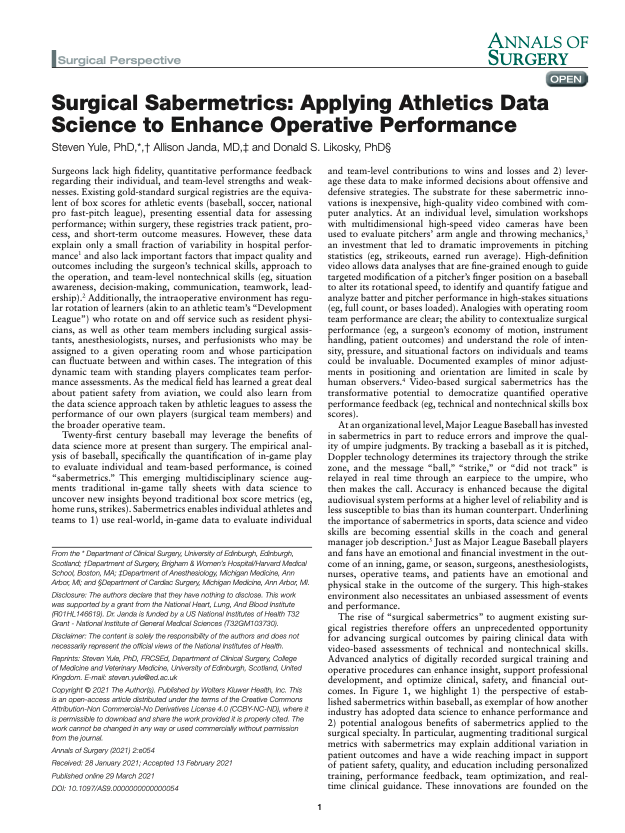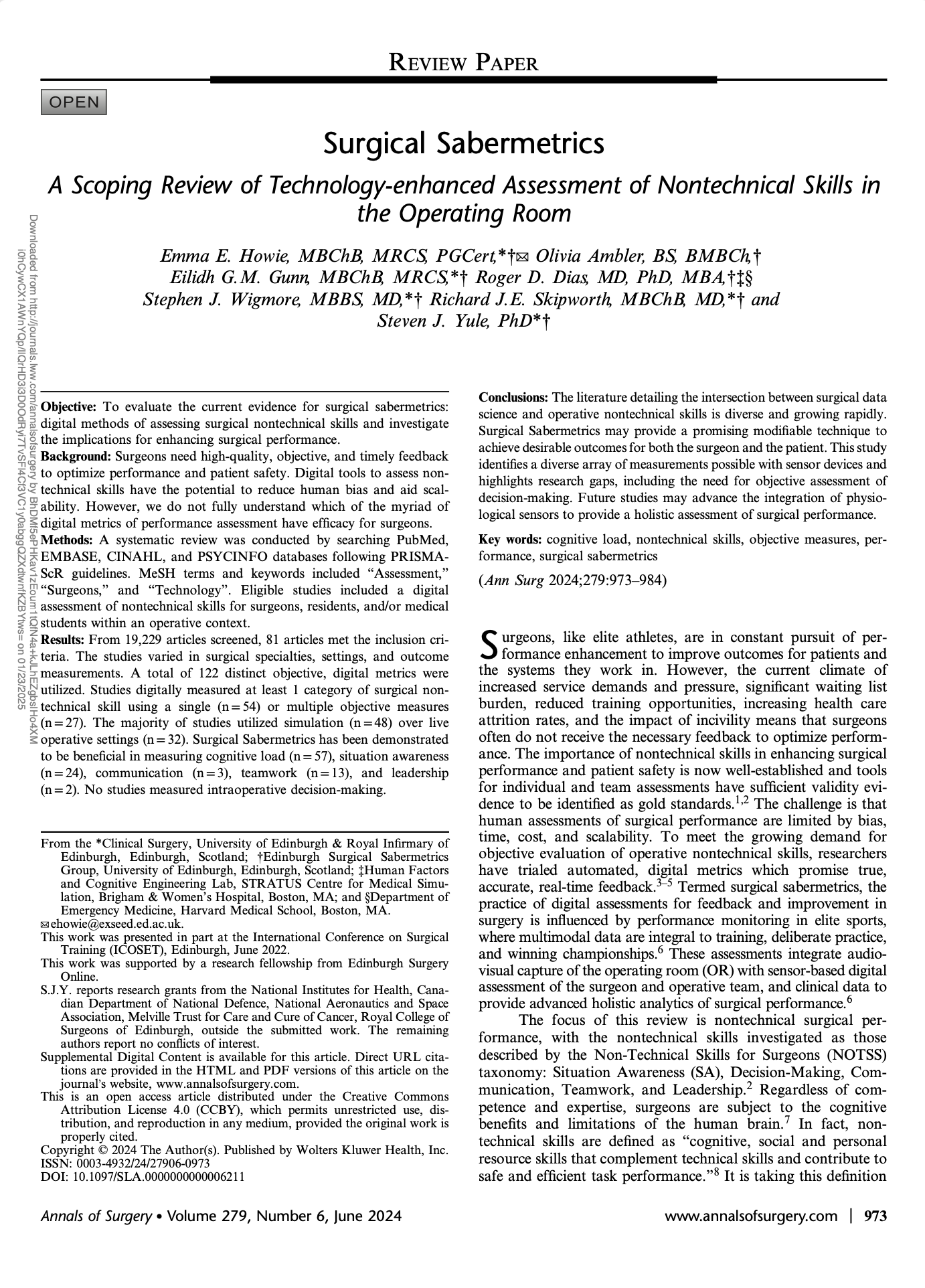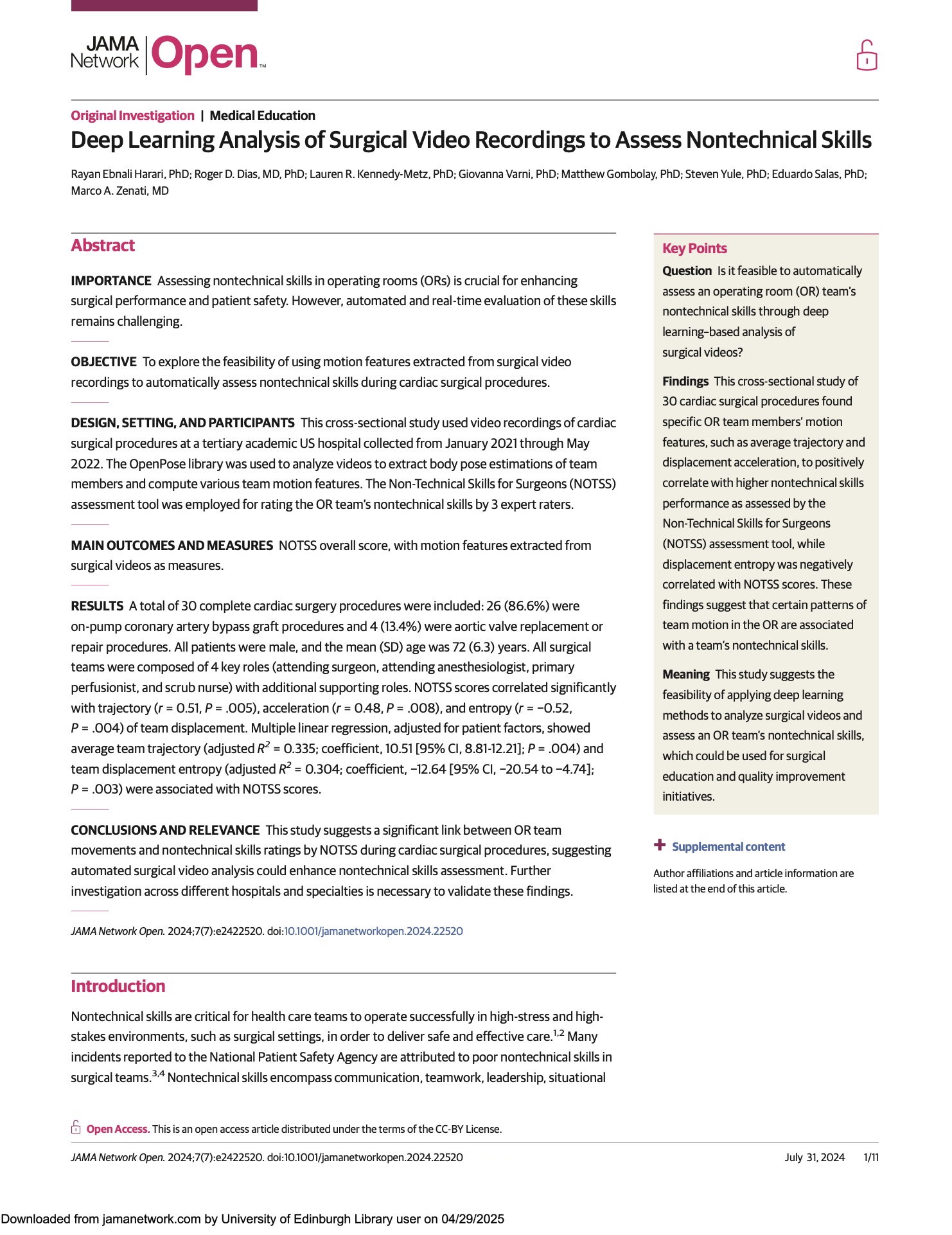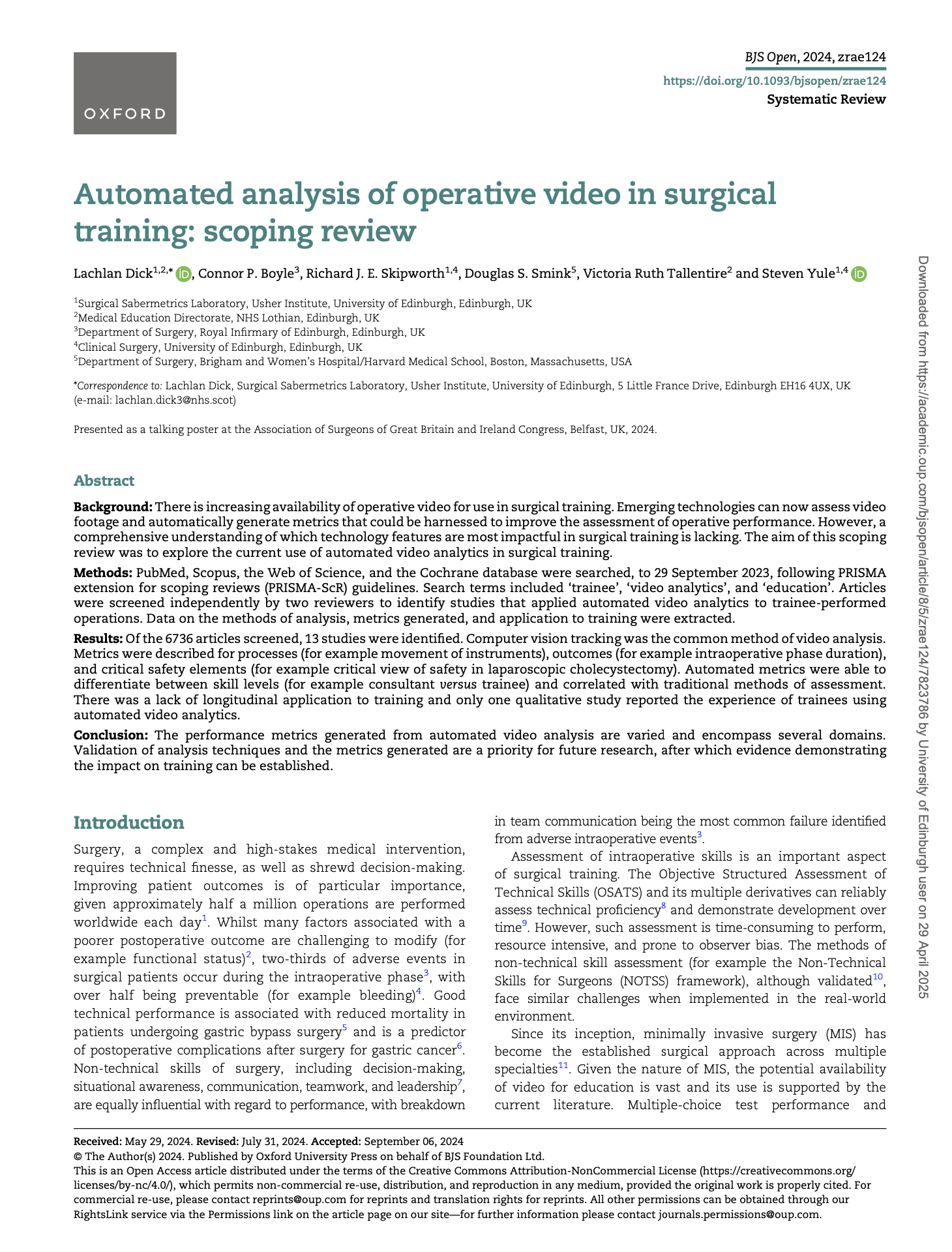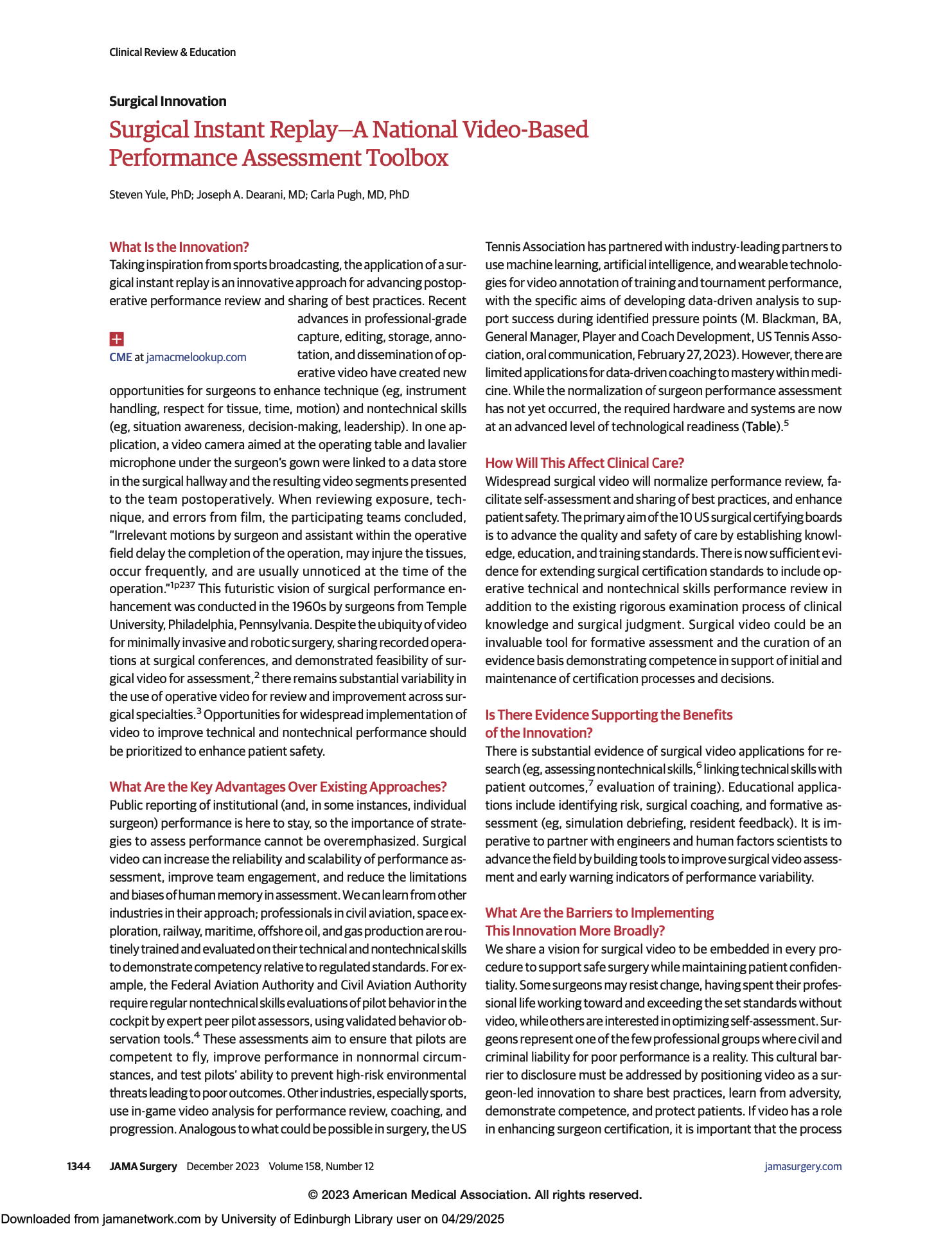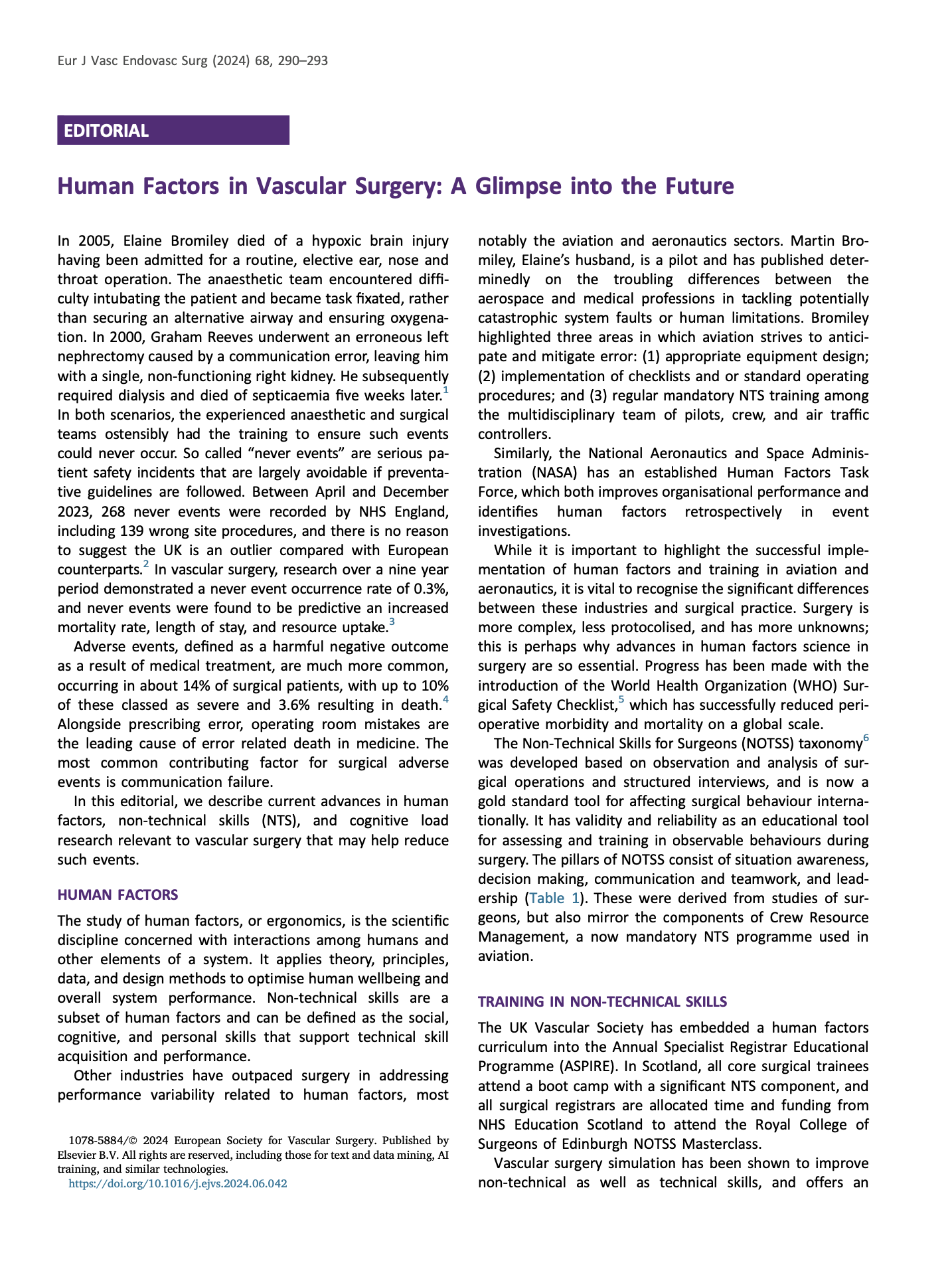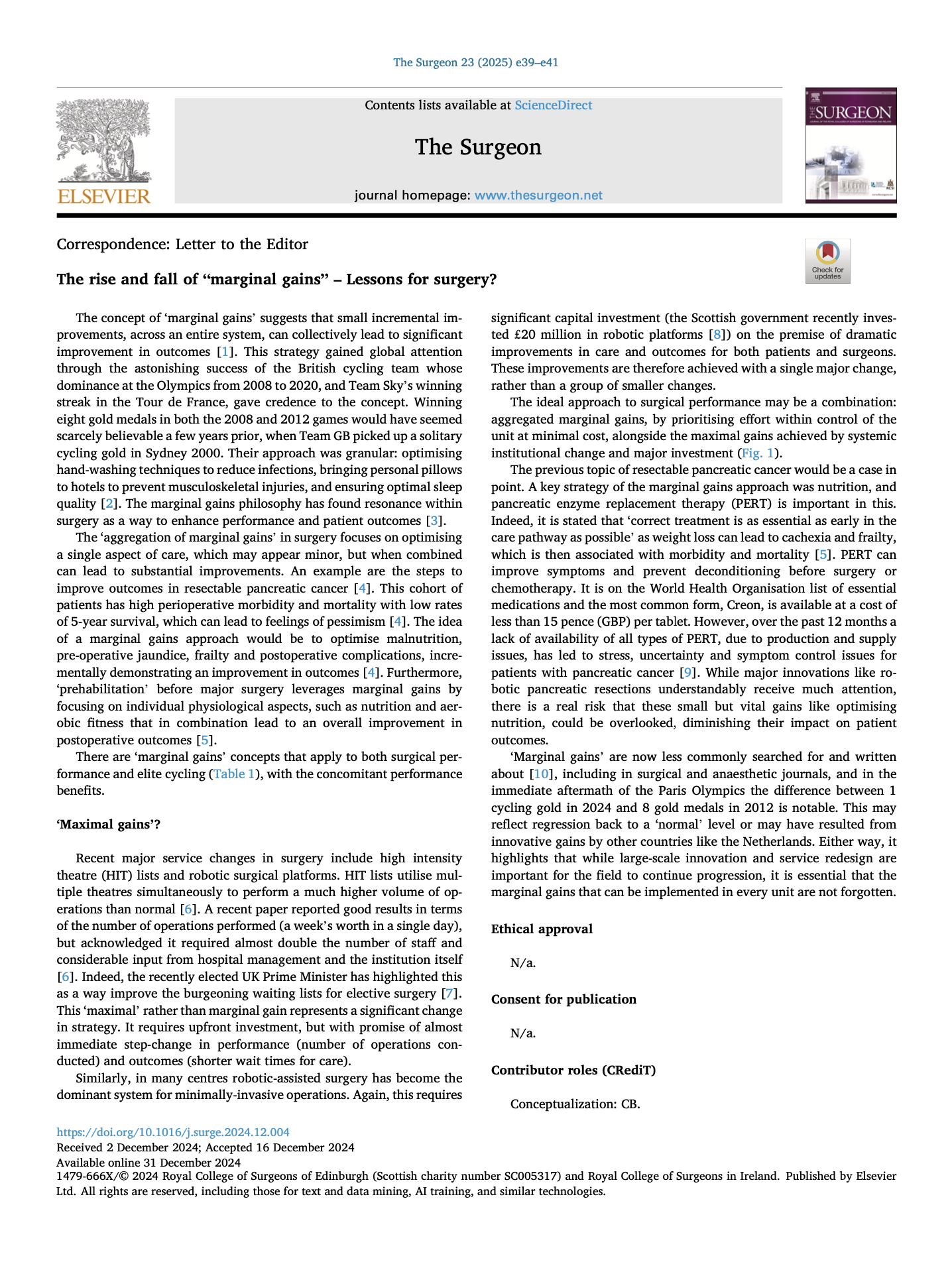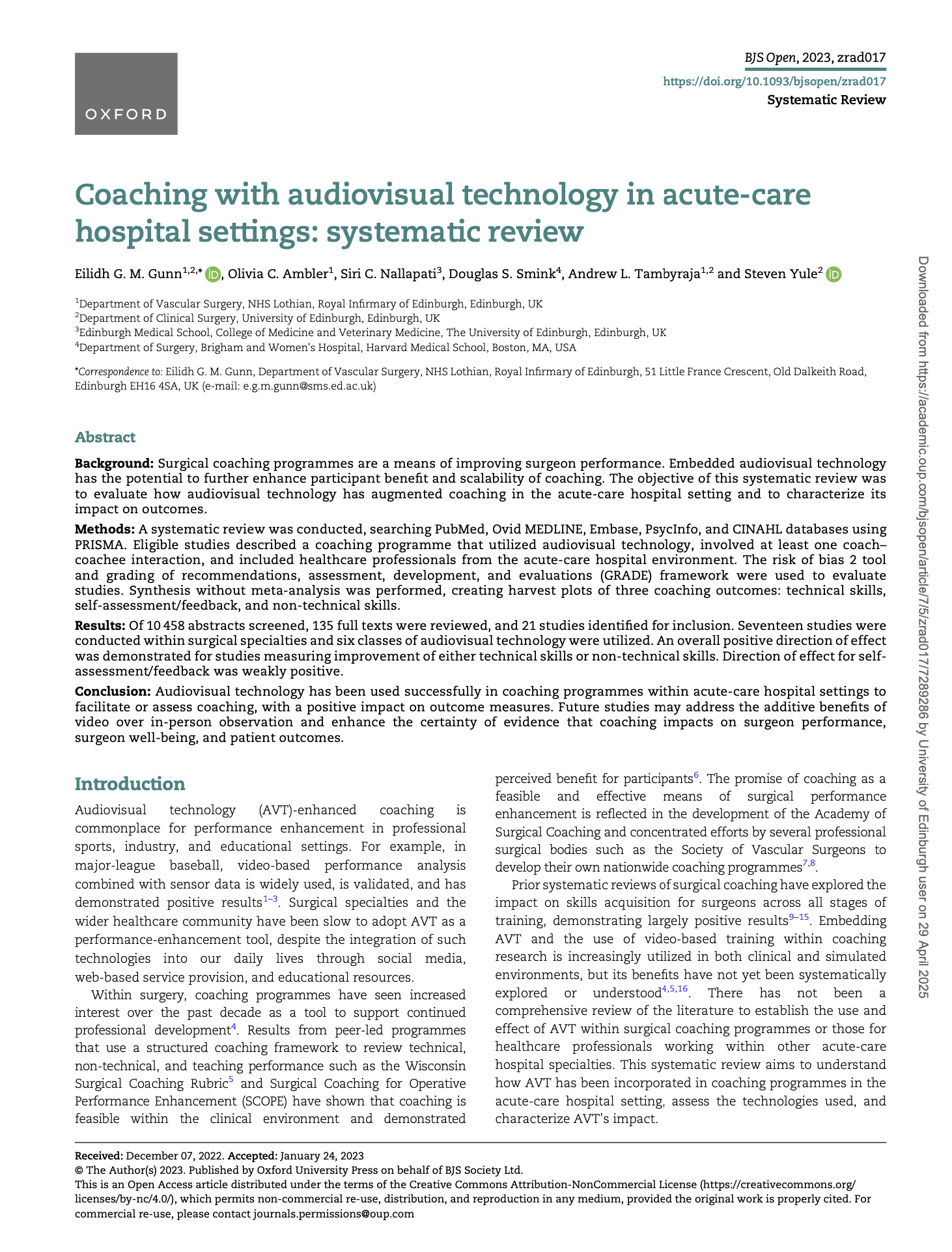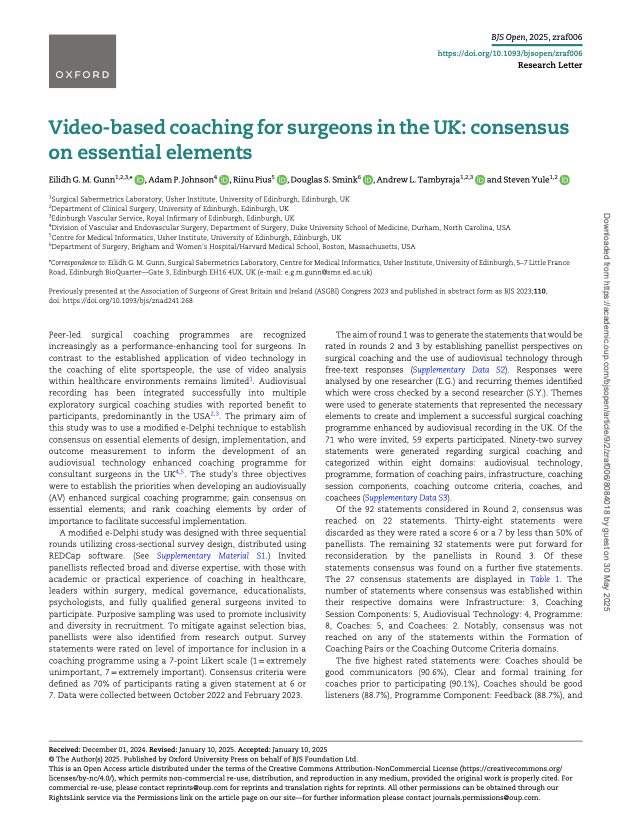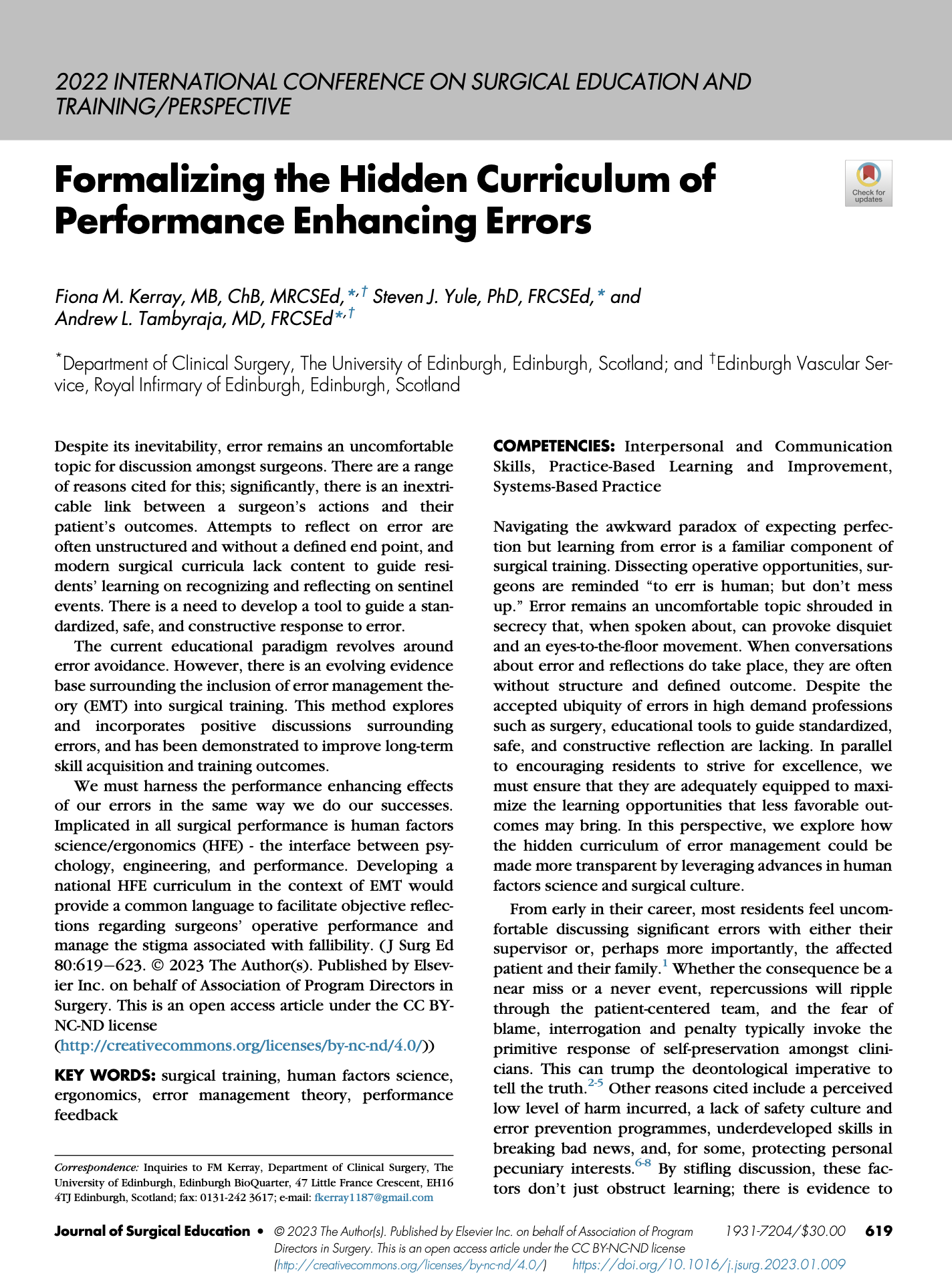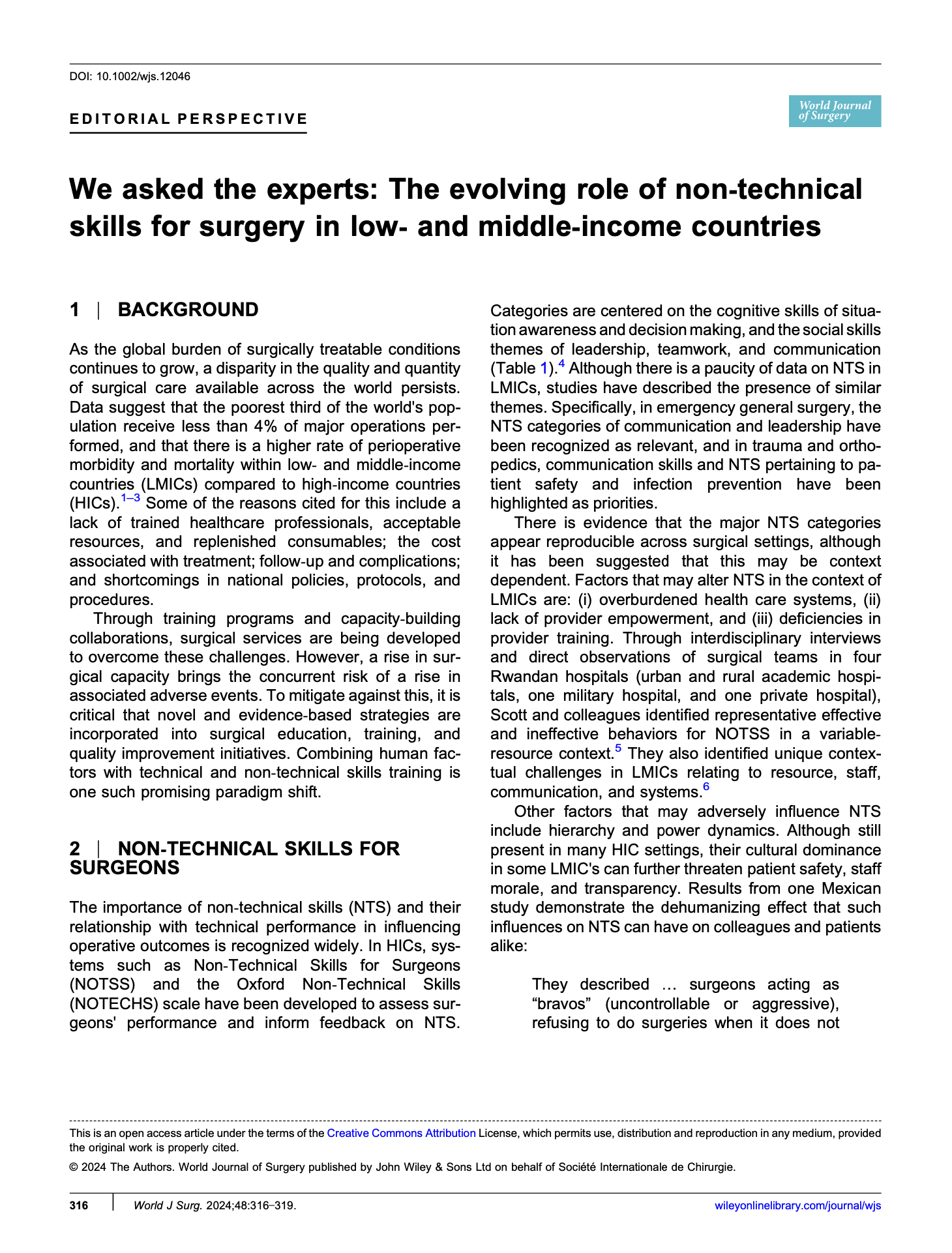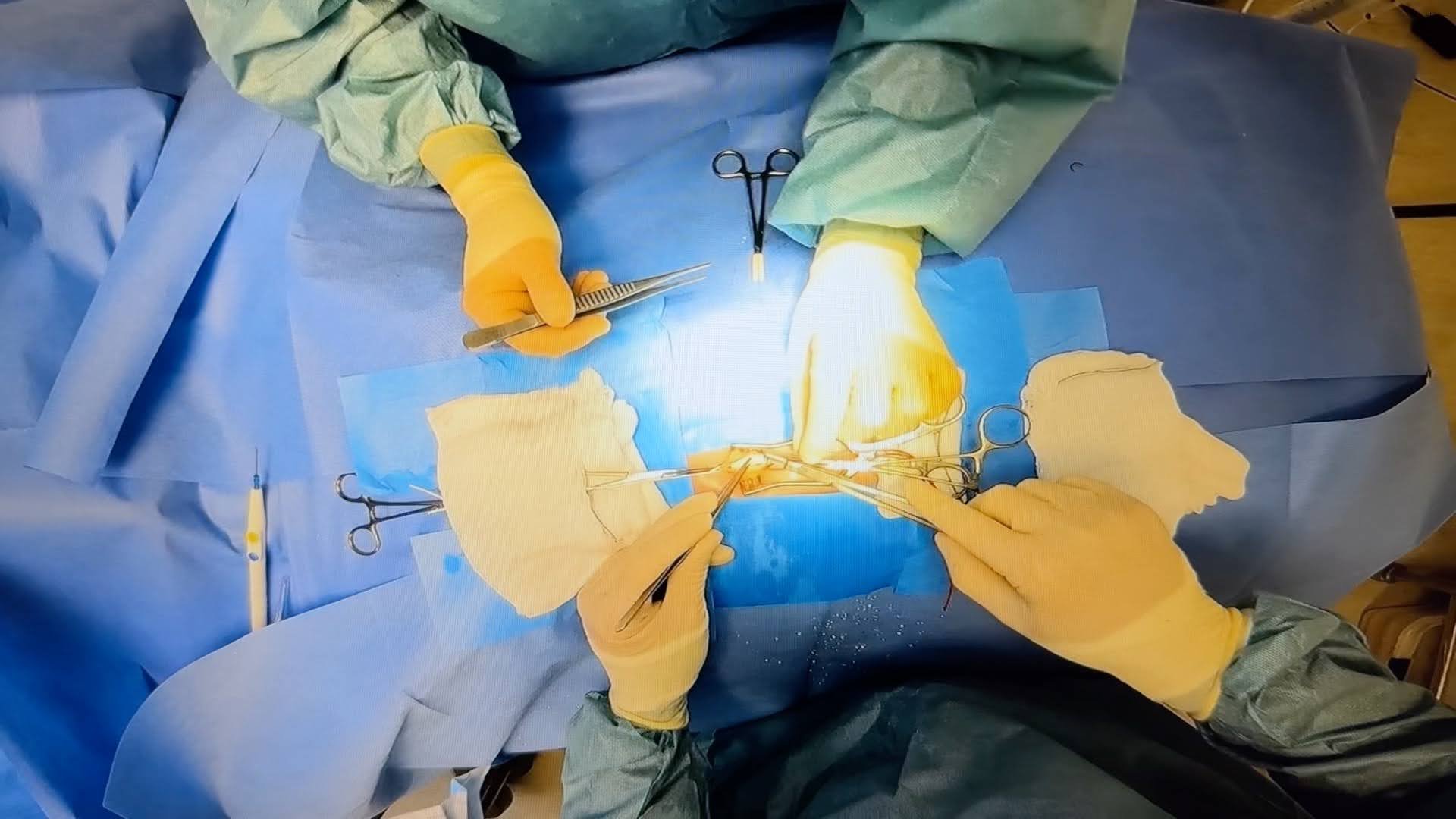
Publications
From Intelligent Operating Systems to Intelligent Operating Rooms
Concept: How emerging technologies including sensors, audiovisual analysis, and artificial intelligence are revolutionising the measurement, feedback, and improvement of both technical and non-technical skills in surgery.
Surgical Analytics
Machine learning for skill evaluation
Wearable biosensors for cognitive load measurement (e.g., HRV, EDA, EEG)
Computer vision (e.g., hand pose tracking)
Automated video-based performance feedback
Real-time cognitive load and motion analysis

Concept: Clinical Human Factors explores how individual, team, and system-level factors affect clinical performance. It informs the design of safer, more efficient healthcare systems by aligning processes and environments with human capabilities and limitations.
Clinical Human Factors
Distributed Cognition
Non-technical skills
Multiteam system (MTS) dynamics
Behavioural adaptation under uncertainty
Environmental and ambient conditions

Concept: Examines how intentional strategies at individual, team and system-level can be embedded into surgical systems to improve long-term performance and safety.
Systemic Interventions
Surgical education
Performance enhancing techniques
Coaching frameworks
Briefing and debriefing
Surgical culture
"Given the challenges of traditional methods of skill assessment, there is a growing need for an objective and reliable method of providing feedback that is complementary to expert-based assessment."
Lachlan Dick, Clinical Research Fellow (PhD)
"Objective, real-time, digital metrics are essential to improve clinical performance."
Emma Howie, Clinical Research Fellow (PhD)
"Teams leave data trails in the form of interaction patterns that reflect the cognitive dynamics of high-stakes performance."
Harini Dharanikota, PhD Candidate

